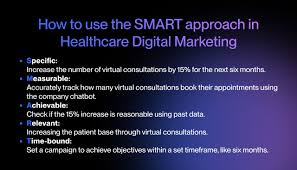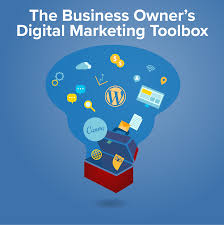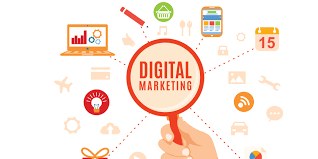The Power of Digital Marketing for Hospitals
In today’s digital age, the healthcare industry is increasingly turning to digital marketing strategies to reach and engage with patients. Hospitals are recognising the importance of establishing a strong online presence to connect with their target audience effectively. Digital marketing offers hospitals a range of tools and techniques to enhance their visibility, build trust, and ultimately drive patient acquisition and retention.
Benefits of Digital Marketing for Hospitals
Increased Reach: Through digital marketing channels such as social media, search engine optimisation (SEO), and email marketing, hospitals can reach a wider audience beyond their local community. This expanded reach allows hospitals to attract patients from different regions or even internationally.
Targeted Advertising: Digital marketing enables hospitals to target specific demographics based on factors such as age, location, interests, and online behaviour. This targeted approach ensures that marketing messages are delivered to the most relevant audience, increasing the likelihood of engagement and conversion.
Enhanced Brand Awareness: By consistently sharing valuable content and engaging with patients on digital platforms, hospitals can strengthen their brand presence and reputation. Building brand awareness through digital marketing helps hospitals stand out in a competitive healthcare landscape.
Key Strategies for Hospital Digital Marketing
Content Marketing: Creating informative and engaging content such as blog posts, articles, videos, and infographics can position hospitals as thought leaders in healthcare. Educational content can help build trust with patients and establish credibility.
Social Media Engagement: Maintaining an active presence on social media platforms allows hospitals to interact with patients in real-time, share updates about services or events, and address patient queries or concerns promptly.
Search Engine Optimisation (SEO): Optimising hospital websites for search engines can improve visibility in search results when potential patients are looking for relevant healthcare services or information online. SEO techniques include keyword research, on-page optimisation, and link building.
The Future of Hospital Digital Marketing
The landscape of digital marketing is constantly evolving, presenting new opportunities for hospitals to connect with patients in meaningful ways. Embracing emerging technologies such as artificial intelligence (AI), chatbots, virtual reality (VR), and telemedicine can further enhance the patient experience and drive engagement.
In conclusion, digital marketing offers hospitals a powerful platform to engage with current and prospective patients effectively. By leveraging the right strategies and tools, hospitals can not only increase their online visibility but also foster lasting relationships with patients based on trust and value.
9 Advantages of Digital Marketing for Hospitals: Expanding Reach and Building Trust
- Increased reach to a wider audience beyond local communities.
- Targeted advertising based on demographics and online behaviour.
- Enhanced brand awareness and reputation building.
- Cost-effective compared to traditional marketing methods.
- Real-time engagement with patients through social media platforms.
- Measurable results through analytics and data tracking.
- Improved patient education through informative content marketing.
- Enhanced patient trust and credibility with consistent online presence.
- Opportunities for innovation with emerging technologies like AI and VR.
Challenges in Digital Marketing for Hospitals: Privacy, Compliance, and Information Overload
Increased reach to a wider audience beyond local communities.
Digital marketing provides hospitals with a significant advantage by expanding their reach to a broader audience beyond local communities. Through online channels such as social media, search engines, and email campaigns, hospitals can connect with individuals from different regions or even internationally. This increased reach allows hospitals to attract a diverse range of patients, raise awareness about their services, and ultimately drive engagement and patient acquisition on a global scale.
Targeted advertising based on demographics and online behaviour.
Digital marketing for hospitals offers the advantage of targeted advertising based on demographics and online behaviour. By leveraging data on factors such as age, location, interests, and online activity, hospitals can tailor their marketing messages to specific audience segments. This targeted approach ensures that the right content reaches the right people at the right time, increasing the effectiveness of marketing campaigns and ultimately driving patient engagement and conversions. Hospitals can deliver personalised messages that resonate with their target demographic, leading to higher levels of relevance and response from potential patients.
Enhanced brand awareness and reputation building.
Enhanced brand awareness and reputation building are crucial benefits of digital marketing for hospitals. By consistently sharing valuable content, engaging with patients on social media platforms, and showcasing expertise through educational materials, hospitals can strengthen their brand presence in the digital space. This proactive approach not only helps hospitals stand out in a competitive healthcare landscape but also builds trust and credibility among patients, ultimately enhancing their reputation as trusted healthcare providers.
Cost-effective compared to traditional marketing methods.
Digital marketing for hospitals offers a significant advantage in terms of cost-effectiveness when compared to traditional marketing methods. By leveraging digital channels such as social media, email campaigns, and online advertising, hospitals can reach a larger audience at a fraction of the cost of traditional marketing avenues like print ads or TV commercials. This cost-effective approach allows hospitals to allocate their marketing budget more efficiently, targeting specific demographics with precision and maximising the return on investment.
Real-time engagement with patients through social media platforms.
One significant advantage of digital marketing for hospitals is the ability to engage with patients in real-time through social media platforms. By maintaining an active presence on platforms such as Facebook, Twitter, and Instagram, hospitals can interact with patients promptly, address their queries or concerns, share important updates about services or events, and provide valuable health information. This real-time engagement not only fosters a sense of transparency and accessibility but also allows hospitals to build stronger relationships with patients by being responsive and attentive to their needs.
Measurable results through analytics and data tracking.
One significant advantage of digital marketing for hospitals is the ability to obtain measurable results through analytics and data tracking. By leveraging advanced analytics tools, hospitals can track the performance of their digital marketing campaigns in real-time, gaining valuable insights into key metrics such as website traffic, conversion rates, and patient engagement. This data-driven approach allows hospitals to make informed decisions, optimise their marketing strategies, and allocate resources effectively to achieve tangible results and continually improve their online presence.
Improved patient education through informative content marketing.
Digital marketing for hospitals offers a significant advantage in the form of improved patient education through informative content marketing. By creating and sharing valuable content such as articles, blog posts, videos, and infographics, hospitals can educate patients about various health conditions, treatment options, preventive care measures, and overall wellness. This educational approach not only empowers patients to make informed healthcare decisions but also establishes the hospital as a trusted source of reliable information in the eyes of the audience. Patient education through content marketing plays a crucial role in building strong relationships with patients based on transparency, credibility, and support.
Enhanced patient trust and credibility with consistent online presence.
An essential benefit of digital marketing for hospitals is the ability to cultivate enhanced patient trust and credibility through a consistent online presence. By maintaining active engagement on digital platforms and sharing valuable, informative content regularly, hospitals can establish themselves as reliable sources of healthcare information. This consistent online presence not only helps build trust with patients but also reinforces the hospital’s credibility in the eyes of the public, ultimately leading to stronger patient relationships and loyalty.
Opportunities for innovation with emerging technologies like AI and VR.
Digital marketing for hospitals opens up exciting opportunities for innovation through the integration of emerging technologies such as artificial intelligence (AI) and virtual reality (VR). By harnessing the power of AI, hospitals can enhance patient care through personalised interactions, predictive analytics for better treatment outcomes, and streamlined administrative processes. Additionally, VR technology can revolutionise patient education and therapy by offering immersive experiences that aid in understanding complex medical procedures and providing therapeutic interventions. Embracing these cutting-edge technologies in digital marketing allows hospitals to stay at the forefront of healthcare advancements and deliver enhanced services to their patients.
Privacy Concerns
Privacy Concerns: One significant con of digital marketing for hospitals is the potential privacy concerns it may raise among patients. Patients may feel apprehensive about the security and confidentiality of their personal health information shared online through digital marketing channels. The risk of data breaches or misuse of sensitive data can erode trust between patients and healthcare providers, highlighting the importance of robust data protection measures and transparent communication practices in hospital digital marketing efforts.
Regulatory Compliance
Hospitals face a significant challenge in terms of regulatory compliance when it comes to digital marketing. Strict regulations like GDPR and HIPAA impose stringent requirements on how patient data is collected, stored, and used in online marketing efforts. Hospitals must diligently navigate these complex regulations to safeguard patient privacy and maintain compliance, adding an extra layer of complexity to their digital marketing initiatives. Failure to adhere to these regulations can result in severe penalties and damage to the hospital’s reputation, making regulatory compliance a critical con that hospitals must carefully manage in their digital marketing strategies.
Information Overload
In a saturated digital landscape, hospitals face the con of information overload, making it challenging to stand out and engage their target audience effectively. With numerous healthcare providers vying for attention online, hospitals may find it difficult to cut through the noise and deliver their message in a way that resonates with patients. The abundance of information available can lead to confusion and decision fatigue for individuals seeking healthcare services, potentially hindering hospitals’ efforts to attract and retain patients in a competitive digital environment.



